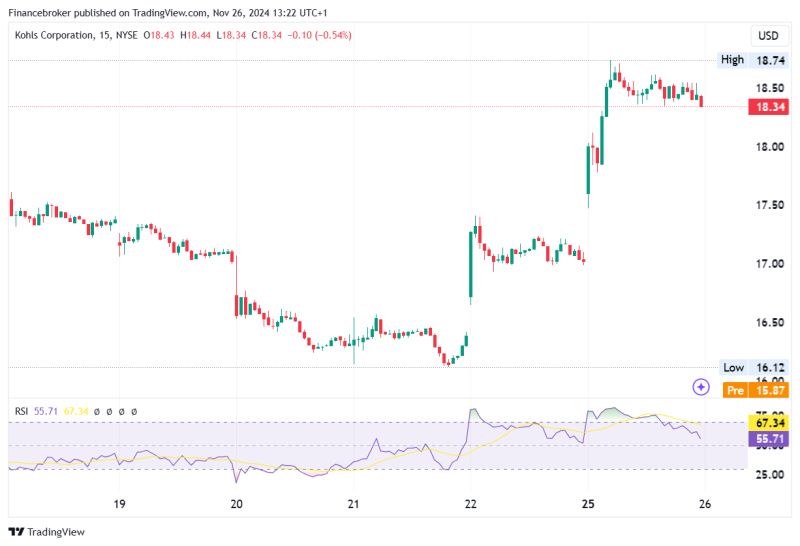
Kohl’s Stocks Take a Dramatic 11% Nose Dive!
Kohl’s Corporation, a well-known American department store retail chain based in Menomonee Falls, Wisconsin, has inevitably experienced a noteworthy drop in their shares recently. On a particular trading day, the shares plunged 11%, raising concern among investors and market watchers.
From a broader perspective, the plunge has been attributed to overall business performance, speculations related to the retail industry, and macroeconomic factors. Digging deeper, the devaluation was likely triggered by several specific variables which affected the investor sentiment towards Kohl’s.
Primarily on the list were the disappointing financial results released by the company. The earnings report showcased lower-than-expected revenues and profits, which naturally alarmed investors. Revenue leakage was attributed to a series of strategic decisions and an inability to keep up with consumer trends in a competitive market. The company’s ongoing struggles to increase in-store traffic and online conversions brought about a streak of unimpressive sales growth figures. Consequently, a decreased trust from shareholders was a predictable outcome, leading them to sell their shares.
The aggravating factor in Kohl’s situation was the mounting debt of the company. The over-leveraging situation painted an alarming financial landscape that fueled the shareholder’s panic. This serious financial concern combined with the disappointing financial results created a scenario that was not conducive to rising stock prices, hence the 11% drop in Kohl’s share price.
The downward spiral was further catalyzed by the company’s poor ranking in customer satisfaction surveys. Kohl’s has been facing significant challenges in improving customer satisfaction due to delayed deliveries and an incoherent online-offline shopping experience. Whilst product assortment was a strong point for them, inconsistencies in customer service and the intricacies of their digital platform contributed to the subpar customer feedback. These factors posed obstacles to customer retention – a key element to any retail chain’s successful operation.
Pandemic-induced issues also took its toll on Kohl’s shares. The COVID-19 pandemic has instigated a paradigm shift in consumer behavior, with many preferring online shopping over physical stores. Despite Kohl’s implementing a solid omnichannel strategy, it fell short of meeting the upsurge in demand for online shopping. The lockdown-induced store closures further hampered their business operations, accelerating the drop in their share price.
Finally, broader retail industry trends also factored into the drop. There has been a declining trend with department stores in general, fuelled by the rise of e-commerce giants like Amazon. This is creating a gloomy outlook for these traditional retailers and posed a plunge in Kohl’s company stocks.
To cap it off, Kohl’s faced a perfect storm due to a synergistic collection of setbacks including disappointing financial figures, customer dissatisfaction, pandemic-induced challenges, and broader sectoral trends. The 11% plunge acts as a wake-up call for the company to rethink and reinvent their strategies to navigate through today’s transformative retail landscape.
